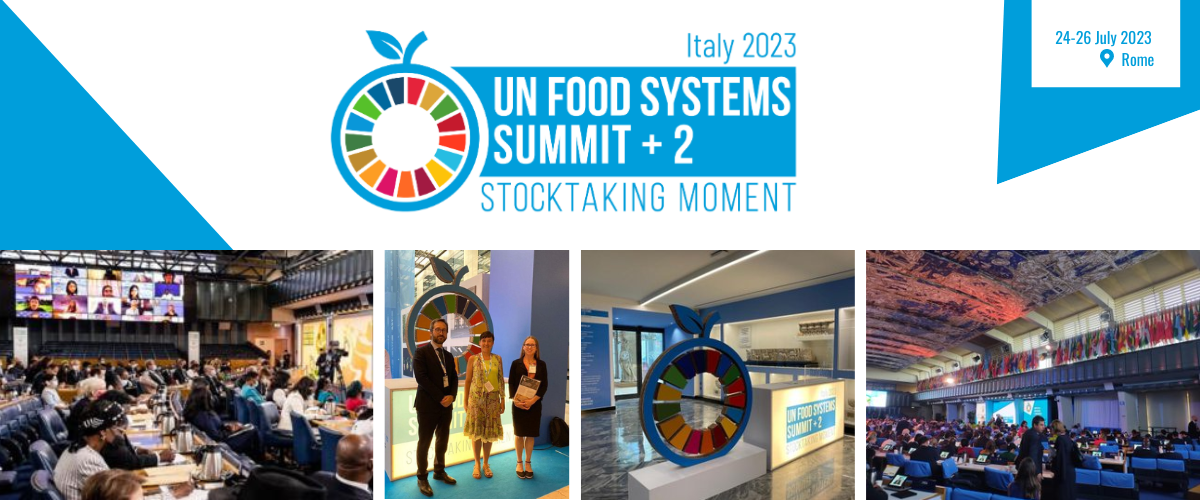Participating in Food Systems Stocktaking Moments

The ORU Fogar Food Sovereignty Core Group actively participated in the UN Food Systems Coordination Hub (UNFSS+2), which was celebrated in Rome from July 24th to July 26th. The Hub noted the severe worsening that the climate crisis, war and the increase in the prices are causing to world food systems.
In the opening ceremony, the UN Secretary-General, António Guterres acknowledged the situation by claiming: “World food systems are broken and thousands of millions of people are paying the price. More than 780 million people are starving and almost a third of all produced food is lost or wasted. More than three thousand million people can not afford a healthy diet”.
The UNFSS+2 was therefore celebrated with projections that make the ODS 2 (“Zero Hunger”) compliance impossible. According to the United Nations, in 2030 approximately 600 million people will suffer from chronic malnutrition. Therefore, around 2000 participants from 161 countries, including the ORU Fogar delegation led by Elisenda Guillaumes, director general of Catalonia’s Agriculture and Livestock, devoted two days to identifying successes, obstacles, and priorities in the transformation of the world food systems framework.
ORU Fogar participated in all the events and conferences about topics on which regions could have a direct impact, such as how to safeguard the most vulnerable populations and how to avoid food undercutting. Those included market policies, public food purchasing or school canteen services. They had a special interest in remarking on the regional commitment to agroecology and those policies favorable to the proximity production. The attendance was, in any case, a great opportunity for exchanging experiences.
The director, Elisenda Guillaume, also attended various meetings. On the first hand, she met Emile Frison, senior advisor in the Agroecology Coalition. He invited the regional governments to participate in the coalition, which shall allow collaboration between different competence levels when implementing food policies. From ORU Fogar, Elisenda Guillaume affirmed that agroecology is shared as having a great food system transformative potential, which can practically come along to the primary sector when making the changes that the new reality is requiring to make.
Another interview was with Leigh Ann Winowiecki, co-leader of the Coalition of Action 4 Soil Health (CA4SH). The appointee of this coalition of action for soil health showed great interest in the Catalan government climate funds and how they currently revert in part to the investigation on soil Carbon Credits. Finally, there was a meeting with Clara Park, from Making Foos Systems Work for women and girls. The ORU Fogar delegation has committed to studying the adhesion of regions in this coalition.
The UNFSS+2 finished with a Call to Action, which identified the key areas of focus on global food security for the next two years. Thus, support was given to actions and policies that link food security to economic growth, but also to climate action and environment sustainability. Mobility of necessary funding to transform food systems was claimed whilst facilitating the access to science, technology and innovation to all actors involved in food and nutrition. The need to involve women, young people and indigenous groups was also noted. Furthermore, the participation of companies in a public-private dynamic that helps overcome the current problems was also highlighted. The need for all actors to collaborate on tackling post-harvest losses and avoid food waste was also pointed out.
The document finally affirms the need to improve collaboration -global, national and regional- which is a satisfactory approach for those who, like ORU Fogar, have always pointed out that a governance that considers territory, is the best ally to reach the “Zero Hunger” ODS.










































































